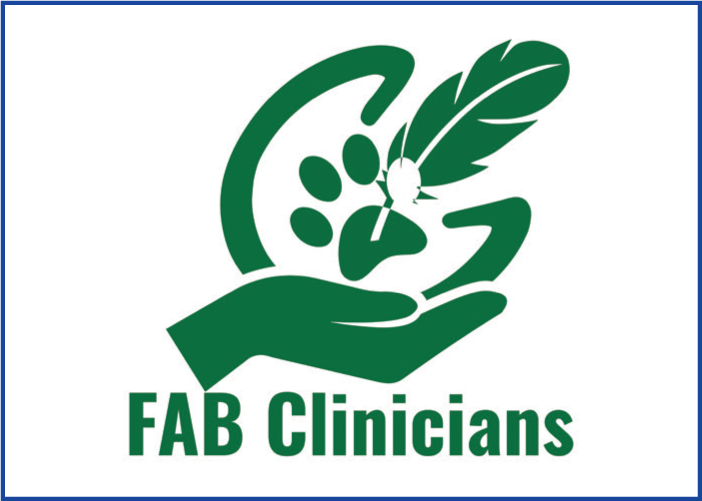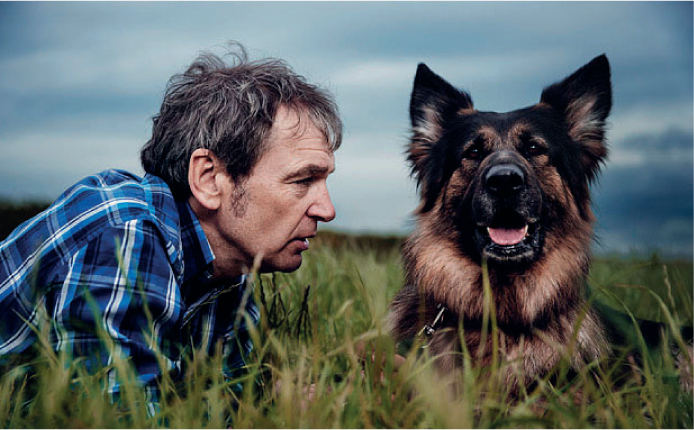This month marks an exciting new era in the world of clinical animal behaviour with the official launch of the Fellowship of Animal Behaviour Clinicians (FABC), an organisation with a clear purpose in supporting the development of clinical animal behaviourists in the UK.
FABC is a professional body established to forward the interests of Certificated Clinical Animal Behaviourists (CCABs) and those training to become Certificated Clinical Animal Behaviourists through the Association for the Study of Animal Behaviour's (ASAB) professional accreditation scheme, a long-established and widely recognised academic and educational organisation.
FABC is delighted to have the support of their Honorary President Dr Mark Evans who is a perfect fit for the organisations with his longstanding advocacy role in creating a harmonious relationships between people and their pets. His well documented television career and plethora of published books on animal welfare and care are a testament to his enduring passion to promote the wellbeing of animals and their caregivers and the values he shares with FABC.

The aim of FABC, which is a registered Community Interest Company (CIC; an enterprise that wants to use their profits and assets for the public good), is to inspire and nurture the relationship between people and animals, promoting the human–animal bond and the emotional wellbeing of animals. Its mission is to promote the highest standard of evidence-based practice in clinical animal behaviour and support independent accreditation of clinical animal behaviourists conforming to standards set by the Animal Behaviour and Training Council (ABTC) and the Royal College of Veterinary Surgeons (RCVS).
Part of its vision is to provide a resource for veterinary surgeons within their client referral process and to give caregivers of animals empathetic help, advice and information regarding the behaviour of their animals.
Founded by a significant number of experts in the field of clinical animal behaviour FABC engenders a culture of collaboration and inclusivity within its field and specifically emphasises its role as a nurturer of professional development and a champion of multidisciplinary cross-specialism working. To this end FABC is delighted to announce that they have partnered with CEVA animal health (https://www.ceva.co.uk) to offer a series of high quality CPD webinars from experts in the field of clinical animal behaviour throughout the next 18 months. These will include webinars on specific behavioural issues, evidence-based practice and promoting the human–animal bond, which will provide valuable CPD for clinical behaviourists, veterinary professionals and students alike.
With the potential upcoming regulation of the animal behaviour sector by the RCVS, and the future advent of Clinical Animal Behaviourist becoming a protected title, FABC is dedicated to ensuring the highest standards of clinical animal behaviour provision and due care of its registered practitioners. Emphasis is placed on both high academic and practical standards of clinicians who work with the latest evidencebased methods to support the veterinary profession and its clients. What also stands out within the ethos of FABC is its motivation to provide for the mental wellbeing of its practitioners; the emotional strain on veterinary practitioners is becoming more widely recognised in the clinical world and the impacts of working with vulnerable animals and their caregivers is heavily felt by clinical animal behaviourists as well. Such an approach to practitioner welfare is vital for the continued successful provision of help from experienced, knowledgeable clinical behaviourists.

For more information on the Fellowship of Animal Behaviour Clinicians, or to become a member, please visit their website at http://fab-clinicians.org and you can follow their updates on Facebook (@FABClinicians), Instagram (@fabclinicians) and Twitter (@FABClinicians).


